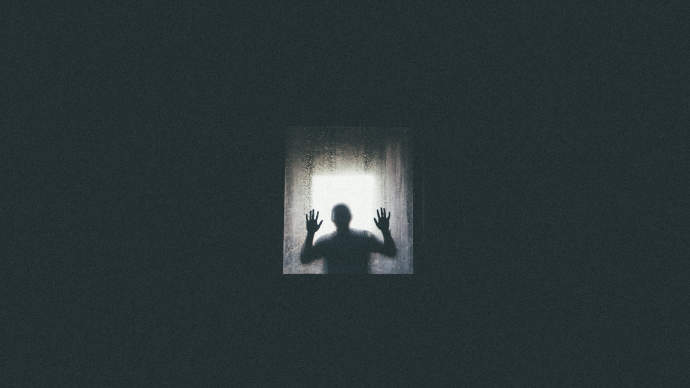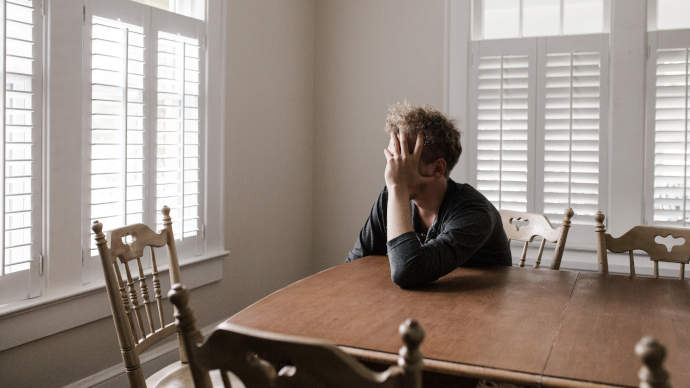Nowadays, we know that people aren’t entirely one or the other—we all have introverted and extroverted aspects, but we lean more toward one side, and certain traits dominate in different situations. Of course, understanding that balance can be complicated, which has led to all kinds of myths, misinterpretations, and stereotypes about what introversion is and how introverts behave. I’ve always known I was an introvert, but I’m not a cliché. Here are the truths behind the most common introvert misconceptions.
Myth #10: Introverts Are Shy and Antisocial
Shyness is an emotion while introversion is a personality trait. Often, shyness can manifest despite someone wanting to socialize or perform, because shyness can stem from a variety of reasons: trauma, anxiety, stress, or even dehydration and sleep deprivation. Being shy doesn’t define your lean toward either extroversion or introversion. In fact, anyone can be shy—it depends on the particular circumstances at hand and how you feel in the moment. For example, an introvert might prefer quiet settings and feel no need to mingle, yet could still be able to strike up a conversation if someone approached. An extrovert might enjoy going out for a night on the town, but struggle to socialize depending on who they’re with. In the right setting, many introverts can actually converse quite well. You’d be surprised how many of your eloquent, articulate, and outgoing friends consider themselves to be introverts. But it also goes a step deeper than that. Introverted socialization isn’t about talking; it’s about being present. An introvert may not say much, but they could still be having a great time, perfectly content with listening and observing.
Myth #9: Introverts Hate Group Activities
It’s true that introverts may prefer to work alone—they don’t see the point in activities like group interviews, team projects, and going around the room so everyone can introduce themselves. These activities promote an extroverted approach to society and start with the assumption that forcing participants to open up is beneficial for social cohesion. Introverts don’t function like that. But that doesn’t mean introverts are entirely reclusive. With the right groups of people and under the right circumstances, many introverts do open up and have a lot of fun. Think board game nights, crafting meetups, and group hiking or camping trips. What’s the difference? These activities don’t demand constant participation. They’re shared social activities that allow the introvert to remain independent and participate at their own pace.
Myth #8: Introverts Don’t Like to Dance
The world is certainly more friendly toward extroverts, full of loud and crowded places that are devoted to overstimulation. For introverts, it’s rarely the activity but the setting that turns us away! Just because the night club environment makes us cringe doesn’t mean we all hate the act of dancing and partying themselves. Indeed, some introverts actually love to dance. Give us a chill beach concert where we can enjoy plenty of free space around us, or a cozy house party where the music is right, and we’ll dance our socks off.
Myth #7: Introverts Are More Likely to Struggle With Mental Illnesses
Research shows that extroverts outnumber the introverts of the world. Because of that, the world tends to be designed more for extroverts—and introverts are judged by how well they fit the extroverted pattern. Introverts are often forced into social situations that they simply don’t care about, and that can make us look miserable. Some even go so far as to say that introverts are mentally ill or deficient to a degree. For example, the introverted personality may look like depression or anxiety to an outsider, but depression and anxiety can manifest in many different ways—and they’re often hidden away. As of this writing, there’s little scientific evidence to even suggest that introverts are more susceptible to mental illnesses. Extroverts also have to deal with mental illnesses, even if they aren’t always the same ones.
Myth #6: Introverts Are Anxious and Insecure
Aren’t all humans anxious and insecure? Yes, they absolutely are, to varying degrees depending on the person. While self-consciousness is something we all experience, it’s true that some of us have less self-esteem than others do. What isn’t true is the idea that extroverts are more confident and self-assured than introverts. The world’s extroverted gaze looks at introverted behavior through a specific lens and reads introverted behavior as cloistered, timid, and uncertain. From an extroverted perspective, introverts may look like they lack confidence and feel anxious about themselves. What’s really happening is that introverts don’t always feel the need to project their inner feelings outward. We may be insecure at times—all people are—but we mainly just keep ourselves to ourselves.
Myth #5: Introverts Are Always Quiet
The idea that introverts are quiet is extremely reductive. Introverts can be very chatty in the right setting. Indeed, when a group is well-balanced and the conversation is respectful, deep, and engaging, many introverts will gladly take part—and some may even take over and lead the conversation. When discussion moves onto a topic that the introvert holds dear to their heart, most introverts will light up and contribute plenty. But when discussion moves onto a topic that the introvert knows little about or doesn’t have much experience in, they may clam up—not because they’re unengaged but because they want to listen. Listening is very important for introverts and it’s a core way that introverts interact with others. But don’t get that twisted to mean that introverts never talk. We can be just as chatty as anyone.
Myth #4: Introverts Are Poor Leaders
Many people see introversion as a barrier, and that definitely extends into the world of business and leadership. The world is tailored to extroverts because introverts are in the minority. That mindset bleeds over into the concept of leadership, with people defining good leadership by extroverted principles. For example, when you think of a good leader, you probably see someone who’s outgoing, talkative, and socially adept. But there’s much more to leadership than social skills. There’s professionalism, knowledge, a solid internal compass, and the capacities to listen, to empathize with others, to make people better. Just as extroverts aren’t inherently better leaders, introverts aren’t inherently worse leaders. Great leadership comprises an amalgamation of traits that go far beyond personality alone.
Myth #3: Introverts Avoid Confrontation
Some introverts definitely prefer to avoid confrontation, but many extroverts are also aversive to confrontation. This avoidant attitude toward confrontation often arises from a combination of several factors, including cultural background, childhood upbringing, emotional trauma, and attachment style. Indeed, many introverts who were raised a certain way will try to hash out problems as soon as they arise, able to express themselves clearly and concisely when the situation calls for conflict resolution. Introversion doesn’t mean we keep everything bottled up. We all seek inner peace in different ways, and for some of us, that means addressing issues promptly and clearing the air without delay.
Myth #2: Introverts Don’t Care About Style
Personal style is exactly that: personal. Everyone who wears clothing has their own tastes when it comes to what they enjoy wearing. To say that introverts don’t care about what they wear, that they don’t care about style, is unnecessarily reductive. In fact, clothing is often an extremely important means of self-expression among introverts, especially among those who find it difficult to meet the social demands of an extroverted world. Some introverts may prefer reserved attire, but then again, some of the loudest dressers are actually the most introverted. Someone’s style can tell you a lot about them—but not whether they’re introverted or extroverted.
Myth #1: All Introverts Are the Same
With this final point, I wanted to highlight how shallow this statement is. Why would all introverts be the same? Acclaimed professor Dr. Brian Little once said that “individuals are like all other people, some other people, and no other person.” In other words, any given introvert may share qualities with many other introverts, but they may also share qualities with extroverts, and they’ll also have qualities that are uniquely their own. No two introverts are the same, just as no two extroverts are the same. It all circles back to the very first thing we explored, that all people exist on a spectrum between introversion and extroversion. We all have our own balance of introverted and extroverted traits, and those traits don’t always manifest in the same ways. If you like to stay in rather than go out, maybe that’s just who you are! Read next: I Like Staying Home Instead of Going Out: When Is That a Problem?













